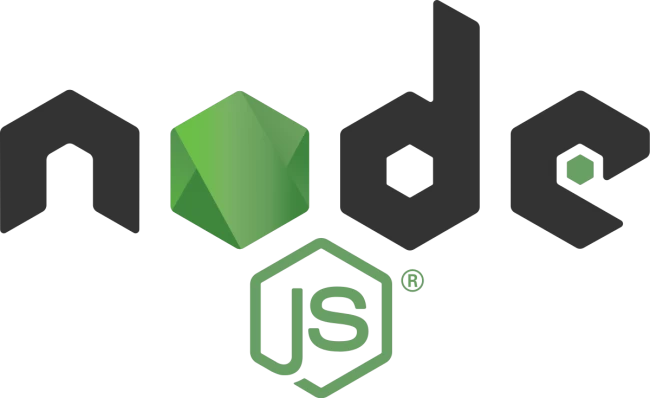List of content you will read in this article:
In the world of software development, there are many programming languages and while some offer different ways to carry out the same function, there are also ones that are unique and are made to write software for a certain purpose.
When we think of JavaScript, we think of front-end web development and execution within a web browser. This has been true for a long time before the original developers of JavaScript it from code that could only run within a browser to a language that can be used to create standalone applications that could run on your computer without using a web browser.
This expansion gave birth to Node.js and allowed developers to do much more with JavaScript than simply make interactive websites. The language now has the ability to carry out tasks that other scripting languages like Python do. Today we will discuss all there is to know about Node.js. Let’s get right into it.
What is Node.js?

Node.js is a cross-platform JavaScript run-time environment that can execute JavaScript code outside of a browser. Node.js is open-source software that unifies web application development on a single programming language that focuses on both server and client-side scripts. Node.js uses JavaScript to do things other scripting languages (e.g. Python) do and is no longer limited to just making websites interactive. Even though .js is the standard filename extension for JavaScript, Node.js doesn’t refer to a particular file but merely the name of the product.
The Node run-time environment includes everything you need to execute a program written in JavaScript. Both JavaScript and Node.js run on the V8 JavaScript runtime engine which converts the code into machine code. Node.js optimizes throughput and scalability in web applications with many input/output operations, as well as for real-time Web applications.
One of the main functionalities of Node.js is that it allows the creation of web servers and networking tools using JavaScript and a collection of modules that handles various core functionalities. The modules are used for file system I/O, networking, cryptography functions, and other core functions. Node.js is supported by almost all operating systems. For example, Windows VPS, Linux VPS, FreeBSD, macOS, OpenBSD are officially being supported by Node.js while the provided source code is modified in order to be supported by other systems.
Features of Node.js
Here are some of the features that make Node.js so popular among JavaScript developers.
Non-blocking and Event-driven
All APIs of the Node.js library are asynchronous, meaning a Node.js-based server never waits for an API to return data. Instead, the server moves to the next API after calling it and a notification mechanism of Events of Node.js helps the server to get a response from the previous API call.
Fast code execution
Node.js is built on the favorite of the masses, Google Chrome. To be exact, it is built on Chrome’s V8 JavaScript Engine, giving it very short code execution times.
No buffering
Applications built using Node.js do not buffer any data but simply output it in chunks.
Single-threaded but Scalable
Node.js uses a single-threaded model with event looping. The event mechanism helps the server to respond in a non-blocking way and makes the server highly scalable as opposed to traditional servers which create limited threads to handle requests.
Advantages of Node.js
Easy to learn
As JavaScript is one of the most popular programming languages with which most front-end developers are familiar, it’s easier to start using Node.js at the backend. Node.js is easier to learn and consumes less time to work with it.
Easy scalability
The applications can be scaled in a horizontal manner by the addition of additional nodes to the existing system. This also offers you the option of adding extra resources to the single nodes during the vertical scaling of the application.
Used as a single programming language
Node.js allows writing both front-end and back-end web applications in JavaScript using a runtime environment without the need for any other server-side programming language.
Offers high performance
As mentioned earlier the JavaScript code is run on the V8 JavaScript engine and this compiles the JavaScript into machine code. This makes it easier and faster to implement the code in an effective manner while the speed of code execution increases as it supports the non-blocking I/O operation.
Support of a large and active community
JS has a very large and active community of developers who keep a continuous contribution of solutions which helps its further development and improvement.
Disadvantages of Node.js
Application Programming Interface (API) is not stable
One of the main drawbacks of Node.js is that the API keeps on changing at frequent intervals and does not remain stable.
Node.js doesn’t have a strong library support system
In comparison to other programming languages, Node.js is not equipped with a robust library system which results in users being forced to take support from common libraries when executing tasks like image processing, handling database operations, XML parsing, etc.
What should Node.js be used for?
There are certain types of applications that benefit greatly from Node.js’s features. Here are a few use cases:
- Data Streaming Applications
- Single Page Applications
- I/O bound Applications
- Data-Intensive Real-time Applications (DIRT)
- Single Page Applications
Do keep in mind, however, that these are not limits, but suggestions. Therefore, there are many more scenarios where Node.js can come in handy. If there is one thing we certainly do not recommend is using Node.js for CPU-intensive applications.
Node JS Versions
in this section, we will list all node js versions that are released, if you need to check node version you can simply use the node -v command.
Conclusion
In today’s article, we introduced Node.js and its functions. We also discussed some attractive features of the runtime environment as well as its advantages and disadvantages. Lastly, we gave some examples of application types that would be optimal to be built using Node.js.
We hope you found this information useful and if you have any questions or suggestions, please leave them in the comment section down below.

I'm fascinated by the IT world and how the 1's and 0's work. While I venture into the world of Technology, I try to share what I know in the simplest way with you. Not a fan of coffee, a travel addict, and a self-accredited 'master chef'.